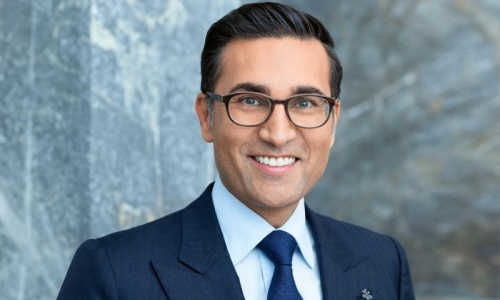UBS tapped the strength of its private bank in the crisis. The unit's revamp under new co-head Iqbal Khan proved in the nick of time.
In the first months of what looks to be the biggest economic crisis in decades, UBS' private bank posted its strongest quarter in at least two years. The unit delivered a pre-tax profit of $1.2 billion, 41 percent more on the year.
While the bank gained in nearly all areas, its trading desks were especially busy. This is a stark reversal from past quarters, when most private banks including UBS had reported trouble getting their clients to more actively buy and sell securities or products.
Uncannily Good Timing
The pandemic changed that: income from transactions surged 46 percent to $1.1 billion in the quarter. And despite dwindling assets, recurring fees also rose, and interest income edged higher.
Tumultuous financial markets are behind the boost – but UBS also benefited from uncanny timing. Wealth co-heads Iqbal Khan and Tom Naratil had in January revamped the unit, including disbanding an investment products unit in favor of closer cooperation between UBS' investment bank and wealthy clients.
Nimble Private Bankers
The revamp, which affects regions overseen by Khan far more than the Americas that Naratil is in charge of, enabled UBS to debunk a popular trope: the bank as a slow-moving supertanker. In fact, UBS' $2.3 billion in assets and nearly 10,000 private bankers proved pretty nimble.
The difference to Credit Suisse – Khan's former shop – is dramatic: Credit Suisse's pre-tax profit rose 17 percent against the backdrop of a nearly one-third surge in trading income to 784 million Swiss francs ($804 million).
Unified View
UBS gives much of the credit for its private banking performance to Mark Haefele: the investment boss and his team reached 95,000 clients in the first quarter, and published 13,000 global research reports in March alone, it said. The harmonized «house» view helped keep clients on board, the bank noted.
Beyond the organizational aspect, UBS leaned on its historic strength in Asia, where the crisis first broke out late last year. This filtered through strongly, with UBS benefiting from volatility longer through the period.
Asian Success
The Asia-Pacific region contributed the strongest private banking showing: its $398 million pre-tax profit was more than double on the year, on a fraction of revenue that the far larger Americas generates. UBS probably can't sustain a fighting cost-income ratio of 50 percent in Asia and 72.4 percent in its wider private bank: the same crisis which roused clients from their lethargy early this year will come home to roost in coming quarters.
As UBS put it its outlook, «Lower asset prices will reduce our recurring fee income, lower interest rates will present a headwind to net interest income, and client activity levels will likely decrease, affecting transaction-based income.»



































